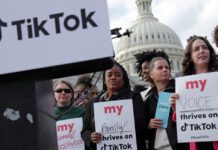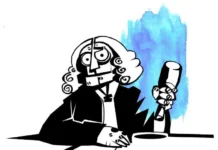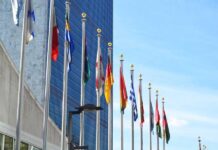John Pilger: The Coming War — Time to Speak Up
Silences filled with a consensus of propaganda contaminate almost everything we read, see and hear. War by media is now a key task of...
The Orwellian RESTRICT Act is a chilling echo of ‘1984’ and an erosion of...
Far beyond cracking down on TikTok, the bill envisages frightening powers to control citizens’ access to ‘unwanted’ information
Ian Miles Cheong is a political and cultural...
Opinion – ChatGPT and the Threat to Diplomacy
Historically, British Prime Ministers have taken a dim view of diplomats. Lloyd George stated that diplomats were invented simply to waste time. Edward Heath...
Law & ChatGPT: Will AI take over lawyers and judges?
In light of creation of the ChatGPT and its rapid development, questions were raised regarding its legal advice/decision abilities. The chatbot made its very...
Fake news e intelligenza artificiale: l’incontro all’ambasciata italiana a Washington
Dai deepfake a ChatGPT, passando inevitabilmente dai social media, la disinformazione si alimenta anche grazie ai progressi dell’intelligenza artificiale. “All’inizio c’erano grandi speranze sul...
Beyond Froyd: Crafting a Love Story between Humanity and Tech
Imagine how important technology is, in our everyday lives – for those fortunate enough to be connected to the Internet and enjoy some of...
Russia Has Lost Soft Power War with Ukraine – Global Soft Power Index 2023
A state’s international image is its main “soft power” attribute. By developing this well-known concept, countries can create prospects for national investment, and therefore...
Arab Spring or Islamic winter? KP Fabian’s new ‘was and wasn’t’ book answers this...
In an event in Delhi, KP Fabian discussed US involvement in the 2011 Arab uprisings and the flawed notion of resistance to democracy in...
False Flag Conspiracy Theories: Psyche, Society, and the Internet
So, did you hear? That whole story of Paul Pelosi being attacked was faked—another false flag operation!1 And the January 6 attack on the...
Raskrinkavamo najveće laži zapadne propagande u Ukrajini /video/
Fabrikovanje lažnih vesti i optužbe da Rusija čini navodni genocid i zločine u Ukrajini su već viđene metode koje je Zapad uigravao na Balkanu,...



















